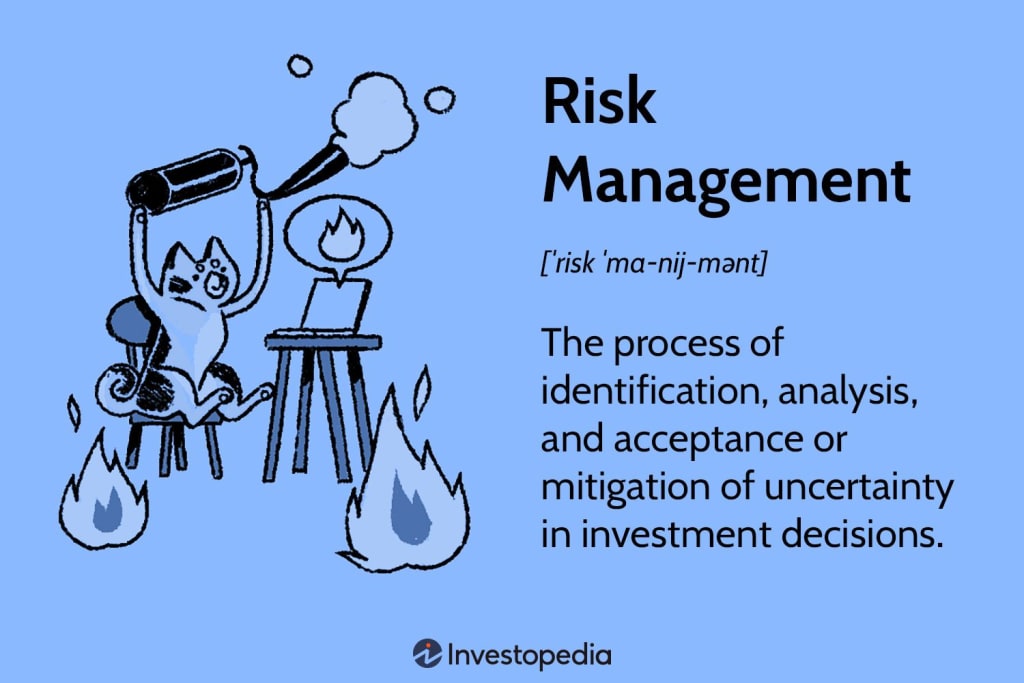Personal Finance
The Impact of Risk and How to Mitigate Financial Losses

Risk is an inherent part of running a business and often causes unprecedented financial losses. Whether due to a sudden disruption in the market, a natural disaster, or a technological glitch, businesses of all sizes can find themselves in the difficult situation of needing to mitigate financial losses. Business owners must understand how to proactively manage risk and create financial reserves in order to minimize losses and keep their business afloat when a disaster strikes.
When it comes to detailing the impact of risk, it’s easy to overlook the hidden costs associated with it. They may come in the form of operational disruptions, dismissed contracts, or tarnished reputations. Even successful companies can be brought to their knees by the financial fallout of not having an adequate plan to offset risk. By preparing a plan of action that takes into account potential threats and their associated losses, companies can minimize their financial risks.
One way to mitigate financial losses is through risk management strategies. These strategies may include purchasing business insurance, establishing a comprehensive financial reserve, or implementing enterprise risk management processes. Business insurance provides the most protection since it covers things like property damage and legal costs, however, the cost of coverage may be extremely high. Establishing.
How to Avoid the Impact of Risk in Mitigating Financial Losses
Risk is an inevitable part of life and it can be found in almost every sector, particularly the finance sector. It involves the potential for losses which can significantly affect individuals, companies, and even the economy. Financial losses can often be devastating and it is essential to take proactive steps to mitigate the risks associated with them. In this article, we will take a look at different strategies which can enable us to effectively mitigate the impacts of risk in mitigating financial losses.
The first and foremost consideration when it comes to risk management is to understand the risks which can cause financial losses. These could typically include regulatory risks, market and liquidity risks, operational risks and credit risks. It is important to analyze all potential risks associated with any decision, taking into account scenarios for both success and failure.
The second strategy for mitigating financial losses is to develop a risk management plan. This should include developing a risk management process, allocating funds for potential risks, and creating accurate risk reports which can be used to track potential losses. Additionally, it is important to outline any risk tolerance levels and always be aware of how risk-averse the organization is currently.
What We Can Learn about Financial Risk and Its Potential Rewards
Financial risk is an ever-present reality in today’s markets, and with increased financial volatility and instability, it is more important than ever that we understand the risks and the potential rewards that come with them. Taking the time to review the risks associated with investing can help us make sound financial decisions and potentially lead to increased rewards over the long-term. Here, we will discuss what experience is needed in understanding financial risk and provide insight into how to maximize its potential rewards.
When it comes to managing financial risk, it is always best to rely on a knowledgeable and experienced financial advisor. In terms of assessing the risks associated with any investment, a financial advisor can be invaluable in helping to weigh the potential risks against the potential rewards. This is especially true of riskier investments, where understanding the complexities of the financial markets and their associated risks is paramount in making sound decisions.
The most common types of financial risk include market risk, credit risk, liquidity risk, and interest rate risk. With market risk, this is related to unpredictable losses in assets or investments due to market volatility or other components.





Comments
There are no comments for this story
Be the first to respond and start the conversation.